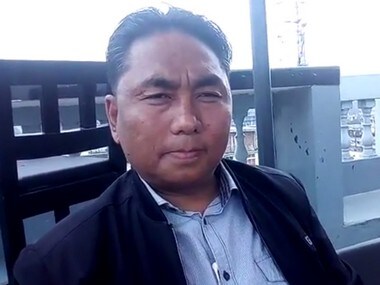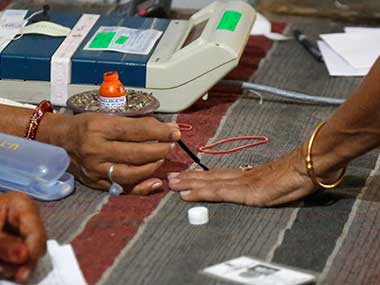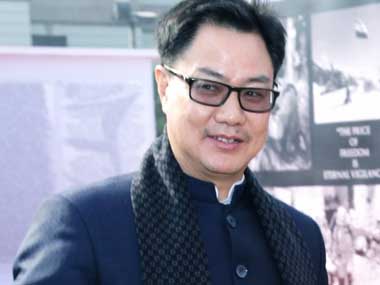Last year, the Government of India kicked off peace talks with six Naga insurgent outfits which are now collectively known as Naga National Political Groups (NNPGs). Alezo Venuh, one of the leaders of NSCN(U), a constituent body of the NNPG and also envoy of the collective leadership of NNPG spoke with the Firstpost about the upcoming Nagaland Assembly election and the peace process.

File image of Alezo Venuh. Firstpost/Kangkan Acharya
You supported the movement which demanded the election be postponed until the peace process is resolved. All political parties were made to sign an undertaking not to field candidates if the election was held before the solution was reached. But all of them backed out and filed nominations...
This time, the Naga people had decided to defer the election. It was not a boycott. On 15 December, the Nagaland Assembly unanimously passed a resolution urging that the election be deferred. A resolution by the apex body of civil society groups also decided that election should be postponed until the final peace accord is signed. We were also a part of this people’s movement. However, after these parties backed out, things changed. Hence, the question of sticking to the demand of deferring the election does not arise.
If the election takes place peacefully, will your outfit support any party?
We haven't taken any such decision because whichever party comes to power will have to take an oath under the Constitution. So, the question of supporting or opposing any political party does not arise.
What are your demands?
All six groups formed a common working committee for the purpose of the peace talks. We had a basic preamble agreement with the Government of India on 17 November, 2017. Based on that, we drafted the agenda. It is premature to disclose the content or the road-map.
But the content of the framework agreement signed between the NSCN(IM) and the Government of India is not known to anyone. Are your demands different from those of the NSCN(IM)?
That's between the NSCN(IM) and the Government of India. That's their internal matter and we have no say in it. But since we lead a people's movement, it's different for us. Any demand we place must be arrived at after consultation with the people.
Is there any chance of confusion between the demands of the NSCN(IM) and the six other groups?
Things are very clear now. The stand of the Government of India and the negotiating party of the NSCN(IM) ruled out the possibility of sovereignty and Naga unification.
Can't confusion arise with regard to other demands?
The question of confusion does not arise. If the demand is good for the Naga, there won't be any problem or confusion.
So, the six groups have also decided not to talk about the issues of sovereignty and unification of the Naga?
The question of unification does not arise because the movement is for all Naga. Our aspirations cannot be done away with at any cost. But we will also have to see the reality. Based on that, we have to do whatever is possible and ensure that it is good for the Naga people.
Do you now feel the demand for Naga sovereignty was not justified?
The question of sovereignty can be interpreted in many ways. But in the case of the Naga, we have a history and we have rights. That is the reality.
The Nagaland government has long been claiming complete right on the state’s crude oil reserves under autonomy granted to it by the Constitution. But the Centre has not ceded this. Is a claim on the state's natural resources part of the draft you submitted to the Centre?
We are yet to start all of that. But, yes, as you've rightly mentioned, the constitutional provision has been given to the state government. We are yet to discuss that.
NSCN(U) was formed to unite the warring groups of NSCN(IM) and NSCN(K). However, later, it became a party to the factional wars...
The intent was to bring the Naga together. We started this process honestly — as any sensible person would in our situation — and for unity and peace. Then, things went wrong. But we can't blame one another now. We have to move ahead with a positive approach. The peace process is on.
Published Date: Feb 16, 2018 08:22 AM | Updated Date: Feb 16, 2018 08:35 AM



















